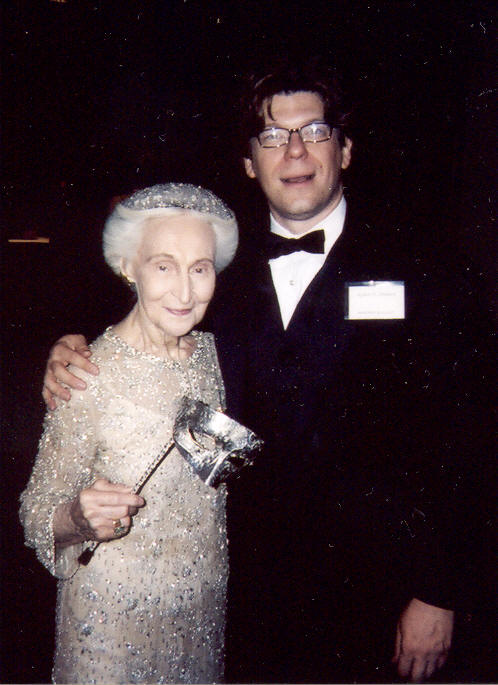Dear Etiquetteer: What do you say when someone makes inappropriate comments without creating a scene?
Dear Etiquetteer:
How does one politely yet emphatically interrupt conversation to deal with other participants who have dropped rude, crass, ignorant, racist or homophobic remarks?
Dear Offended Auditor(s):
We are blessed to live in a land that affords Freedom of Speech. The surprising advantage to this is learning how hateful people can be through what they say, which gives you the freedom to avoid them ever afterward. Etiquetteer wishes dearly that the memory of who said "I think if a man has opinions like that he should keep them to himself" in what movie would come back, but it is nevertheless good advice when one has Controversial Opinions about Other People, Beliefs, Practices, Behaviors, or Places.
Before getting involved, it's very important that you ask yourself honestly what outcome you expect. Do you expect to change this person's point of view? Do you want to warn them that someone who belongs to one of the groups being disparaged is nearby and could be offended? Do you want merely to change the topic? Do you just want to explain why your beliefs are different? Do you want to be sure they know that you think they are a Bad Person Unfit for Polite Society? Because let Etiquetteer tell you, if the answer to that last question is Yes, the most Perfectly Proper thing for you to do is to Remove Yourself from that person at once. Etiquetteer's Dear Mother wisely said "When you lose your temper, you lose your point." If you let anger overmaster you, you defend your point of view poorly.
As a general rule, it is safest not to respond to total strangers. With acquaintances and friends, there is slightly more leeway to offer Gentle Correction. With family . . . well, family dynamics are most challenging. While bound together by blood, differences in generation, region, and education do make themselves felt. Proceed with caution.
Let's establish the situation, which affects in part if and how you should react:
- Are you in public, and are the offenders total strangers? If so, say nothing. That will surely create a scene.
- Is this person just a Provocative Contrarian waving a red cape at a bull for his or her own entertainment? Stay away. You will always lose an argument with such people, who live only to humiliate others.
- Are you a guest at a party overhearing a stranger? Say nothing, or speak to your host or hostess quietly.
- Are you in a group of friends or acquaintances enjoying conversation? If it's necessary to prevent a scene, take the person aside - "Adolf, there's something I particularly want to ask you about" - and suggest Ever So Gently that they're making a bad impression and that more neutral topics are better for the occasion.
- Are you in your own home or are you the host of a gathering at which these remarks are made? If so, it may be necessary for you to say a Quiet Word that the topic in question is forbidden in your house.
Irrepressible Elsa Maxwell recorded a Perfectly Proper example of the latter in her book I Married the World when the woman most known to History as Consuelo Vanderbilt had to react to an insult at her dinner table. It seems that the Earl of Carnarvon, her houseguest along with La Maxwell, suddenly popped out with "the French were a lot of frogs, anyway" in a discussion about postwar Europe. Alas for him, he had forgotten that his hostess was no longer Duchess of Marlborough but had been Madame Jacques Balsan for several years! La Maxwell related: "As Madame Balsan is married to a Frenchman and devoted to France the fat was in the fire. Icily, firmly and irrevocably the ultimatum was delivered to [the Earl]: 'Will you kindly leave my table and my house this instant,' Mme. Balsan demanded. Whereupon, his dinner half eaten, he left the room, went upstairs and had his bags packed and left the house.'"* Which just goes to show that it isn't Perfectly Proper to bite the hand that feeds you. Etiquetteer at least gives the Earl credit for recognizing his Stupendous Blunder and actually leaving the house without trying to have a Tedious Discussion about Feelings.
Etiquetteer will conclude by observing that sometimes Icy Silence communicates more effectively than any words.
Dear Etiquetteer:
When a friends posts something on a social network that you find offensive, is it proper to say anything? Is it simply proper to tell them they have offended you and why?
Dear Internetworked:
It is astonishing how people will toss off the most offensive comments online that they'd at least think twice about before uttering in person. To avoid making a scene (see above), Etiquetteer prefers sending a private message via the Social Media Being Used to explain, in as neutral and brief a way as possible, how what was communicated offended you. Depending on the Offensive Comment, you might include the possibility that they weren't aware their comment could be intepreted in an offensive way. You might also encourage them to delete it. But a flame war should be avoided.
Etiquetteer recommends NOT leaving a comment under the offensive post, which would be likely to prompt a public Airing of Dirty Laundry. Your goal is not to embarrass the other person (Etiquetteer hopes) but to express your own offense.
* Elsa Maxwell, quoted in Consuelo and Alva Vanderbilt, but Amanda Mackenzie Stuart, p. 479.






